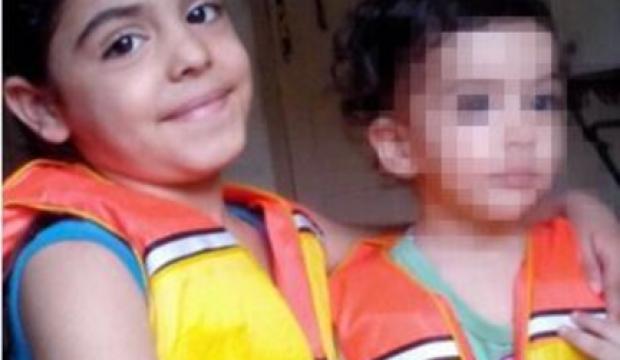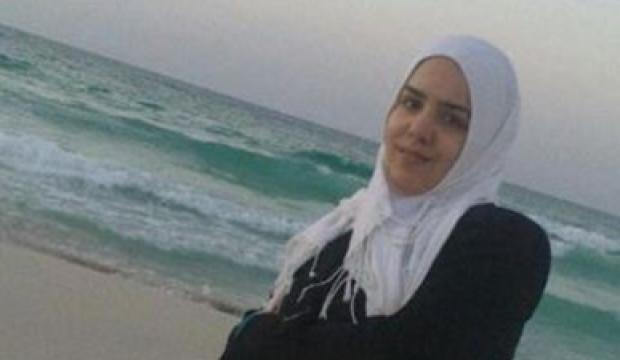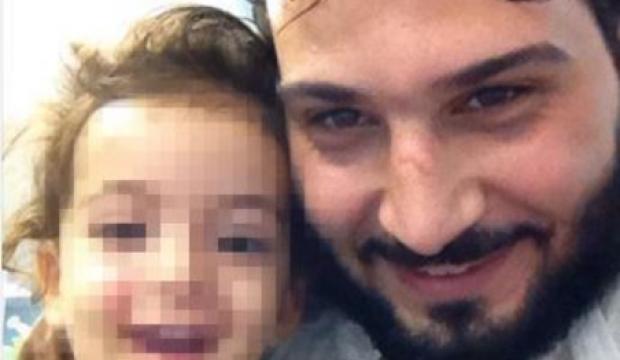By Vasiliki Siouti
The Palestinian girl that survived the shipwreck off the coast of Malta in September is now located at the childcare centre of Mitera, where nobody speaks her language and nobody calls her by her name. Her father’s brother arrived in Greece 13 days ago, to begin legal procedures to take the child. But the institution's authorities did not, initially, let him see her, not even for a few minutes in their presence. They did not even allow him to utter a few phrases in their language. Just so she can hear her name.

Masa and her sister before their tragic journey
The custody trial began last Friday in Chania, on the island of Crete, where the child was transferred after its rescue. Her uncles’ documents say the little girl’s name is Masa Dasouki and she is a Palestinian, from a refugee family that lived in Syria since 1948.
Her 26-year-old uncle, Mohammed Dasouki, is now faced with another struggle. He doesn’t speak a word of Greek, nor English and he is being forced to navigate through an unbelievably complex bureaucracy. Not only has the Greek state not given him any help, but not even the most basic guidance as to what he’s supposed to do.
So much for humanity.
Equally remarkable, is the complete indifference of Greek authorities to the task of locating the rescued baby’s relatives.
Not only has nobody looked for them, but, even when they do appear, they find themselves up against a wall. They had not been even informed of the procedures they must follow to get their child back and were prohibited from seeing her.
In the meantime, according to a plethora of reports and statements made by people that undertook the care of the child, dozens of Greeks had made inquiries for its adoption.

Masa's mother Diala
The stance of the institution remains questionable, to put it mildly, for allowing media crews to file video reports, even from where the baby is sleeping in its crib, while refusing relatives and compatriots to visit, even for a few minutes.
According to a report by TPP, the child’s grandparents are alive (they live in Syria) and her uncle (brother of her father) who lives in Sweden, is now in Greece. He lives with the third sister of the family – the only family member not to drown on the tragic shipwreck.
Her name is Sindra, the oldest of the three sisters (8yrs). Her parents had sent her earlier with her uncle to Sweden, where they also intended to follow them there.
Everyone just wants to hold little Masa tight, but that doesn’t seem likely to occur, any time soon because of the bureaucratic procedures involved.
The documents, brought by her uncle, Mohammad Masouki – including a passport, certificate and lots of family photos -say that her name is Masa Dasouki and that she was born in February 2013. In other words, she is 19-months-old,
TPP met up with the Mohammad Dasouki, when he arrived in Athens, a few days ago, from Sweden along with a Swedish state-tv crew. Swedish journalist Hannah Riden introduced us to him and told us that they came with him because the issue has received wide coverage in Sweden, and that many reports had been made on the survivors of the shipwreck.
Before coming to Athens, they were in Chania, where the survivors were first transferred.
Almost 500 people tragically died in the shipwreck. In Chania, they met 19-year-old Syrian woman, Doa, who saved Masa’s life, after her mother gave the child to her, pleading with her to save it just before she drowned.
Hannah, along with the Swedish TV crew and Mohammad, visited the Mitera institute and waited for two days for an answer to the request they made to do a report. But the answer they got was a refusal. Mitera also refused a request by Mohammad to see the child, even for a little while.

An old photo of the uncle
The excuse given by the institute’s authorities was that it was for the little girl’s protection and that the children there shouldn’t be unsettled by camera crews. The social worker responsible for the young Palestinian girl told us “there cannot be a TV show with the children”.
However, this strict stance doesn’t apply to all, as can be see by the appearances made by the institute’s president and New Democracy member Evangelia Velentza on other TV channels like Mega, with little Masa in their arms.
Even NERIT -, the state-run broadcaster the successor of ERT which was shut down as part of draconian budget cuts – has done stories, with the permission of the institute, from the crib where Masa is sleeping (which they insist on calling Nadia)
Moreover, on the webpage of former defense minister and current Public Order Minister Nikos Dendias, there are photos posted of his visit there, speaking with the children in the presence of Ms Velentza.
Obviously, the institute considers a visit by her uncle to be a show, but doesn’t feel the same when the minister visits for photo ops with the children there.
They, probably, rightly assumed that the Palestinian uncle and the Swedish journalist do not watch Greek morning TV shows to know all this. Her uncle, trying to conceal his disappointment, left institute authorities a bag full of clothes for Masa.
After her rescue on September 12, she received care at Pagni – the children’s university hospital in Iraklio, Crete’s capital. According to news reports at the time there ‘was a remarkable interest about the child’ and the hospital’s phone lines were ‘on fire with calls from people inquiring about a possible adoption of Masa”
The uncle has all the necessary documents of Masa’s family and photos of them together before the shipwreck. He is also willing to take a DNA test, along with his niece in Sweden, to prove they are related
According to the uncle, he decided,along with his brother, Masa’s father, to move to Sweden one year ago. They agreed that one member of each family should go, so as to make it easier and legal to invite the rest to Sweden once they arrived.
So Mohammed left with Sindra, Masa’s older sister, first. And they made it. Only Masa’s grandparents were to remain behind in Syria.
So, on September 6, the rest of the family set sail from the Egyptian port of Damietta on a journey they thought would lead them to Sweden.
But their ship was rammed mid-sea. Masa’s mother managed to pass her on to 19-year-old Doa, who was wearing a life jacket, before drowning. Masa survived in the chilly waters for three days and three nights without water.
A family Odyssey
Mohammed, who only speaks Arabic and a little Swedish, rushed to Chania after hearing that Masa had survived. He was introduced to a lawyer by Arab immigrants on Crete and will appear at the custody trial today.
When he came to Athens, he called her but had difficulty in communicating because he couldn’t speak English or Greek. He gave the lawyer all the required documents but was not aware that he had to first get them translated by the foreign ministry translation service
“If he does not supply all the documents, officially translated by the foreign ministry, custody will be awarded to the institute and proceedings will begin to find her a foster family,” a lawyer in Chania, who initially dealt with the case, told TPP.
Greek authorities have done nothing to help the man or offer guidance. However, thanks to the Swedish journalists his case became known and many people offered to help, including the Palestinian embassy which has now involved itself.
UPDATE
The judge at the custody trial which began on Friday granted Masa’s uncle permission to see her after waiting for more than10 days.